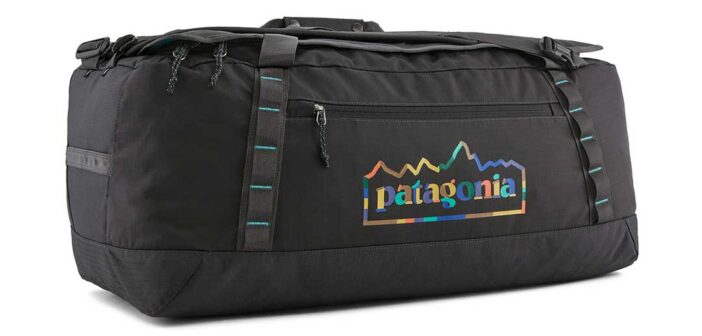From Patagonia:
As Patagonia founder Yvon Chouinard wrote last week in a NYT essay, “People ask me how [Patagonia] has managed to stick around so long…I tell them it’s been our unrelenting focus on quality, which includes making things that last and that cause the least amount of harm to our planet.” Black Hole Duffels are the ultimate example of this, especially this latest iteration.
These bags have been dragged, carried, packed, used and abused all over the world. They have always been built with durability, functionality, repairability and quality in mind since Patagonia started making them in 2004. And while this latest iteration has new design and material features, the price, size/volume options, carry options, stow pocket, interior mesh pocket and exterior daisy chains haven’t changed one bit.
The most significant change to the Black Hole Duffels is a shift from virgin to 100% recycled thermoplastic polyurethane (TPU). TPU is a laminate applied to the material and is a crucial part of what makes the Black Hole Duffel so durable and weather-resistant. For every 1,000 yards of TPU produced, 75 lbs. go to waste as a result of the manufacturing process. In an industry first, Patagonia is now purchasing the TPU “waste” direct from the factories and recycling it into all Black Hole Duffels moving forward. The use of recycled TPU gives the bags a new matte finish look.
Additionally, all new Black Hole Duffels are now designed with even greater repairability in mind. Patagonia’s Reno repair center is now stocked with Black Hole replacement components such as the base, side panels and top panel. Instead of custom patching, a repair tech will be able to replace a damaged panel with a new one, resulting in a higher-quality repair. Fun fact: the replacement panels might not be color matching.
Links to the new Black Hole Duffels:




